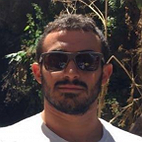During the last cryptocurrency bull run in 2017, there was significant interest in applying blockchain to a wide variety of use cases. As the hype of the rally died down, unfortunately, so did the general level of enthusiasm about blockchain technology before many use cases developed to their true potential. With the benefit of hindsight, this conflation of blockchain's utility with the price of cryptocurrencies was a mistake.
The Ardor blockchain is a testament to this view. Ardor launched at the absolute peak of the last crypto bull cycle in January 2018. Over the subsequent years, Jelurida, the company that operates Ardor, has invested in attracting developers who are making many of the originally-touted use cases for blockchain into a reality. At the same time, the firm has been expanding into new markets to bring blockchain to businesses around the world.
One thing that's striking about Ardor's development activity is that the platform appears to have found a niche in promoting and supporting blockchain for sustainable development. Here are several notable examples.
HotCity
HotCity is a collaborative pilot project that kicked off in mid-2020 in Vienna. The Austrian capital is already home to several "Plus-energy" districts that produce more energy than they consume, thanks to a program of recycling major waste heat sources back into the energy grid. While the bigger heat sources are easy to identify, it can be more challenging to pinpoint smaller heat sources that collectively could still make a significant contribution to more sustainable energy management.
Therefore, the Austrian government allocated a grant to the HotCity project, which is led by the Austrian Institute of Technology. Several firms participated to build the user interface and infrastructure.
The project uses tokens issued on the Ardor blockchain as rewards to residents who participate in crowdsourcing sources of waste heat. They can submit data based on Google maps, photos or on-site inspections. HotCity then uses the submissions to determine the quality and quantity of submissions.
HotCity won the 2020 Austrian Blockchain Award in the Research category.
Treecoin
Treecoin is a pioneering project aimed at creating a sustainable timber business that can also contribute to reforestation efforts in Paraguay. Over recent decades, Paraguay has suffered some of the worst deforestation globally, thanks to an expanding agricultural sector and demand for firewood.
Treecoin uses the Ardor blockchain to issue crowdfunding tokens via a security token offering in Switzerland, regulated by local financial authority FINMA. The project will take advantage of blockchain's transparency to allow investors to see how their funds are spent.
Treecoin is working with a local forest management company to plant 10 million fast-growing eucalyptus trees. The project has earmarked an initial allocation of 12,500 hectares. However, the first planting will kick off a series of harvests over the next 23 years. Treecoin will sell the harvested timber for biofuel. Half of the sales profits will be redirected back into purchasing more land and planting more trees, while 40% will be paid back to investors and the remaining 10% channeled into local social and sustainability initiatives.
Treecoin will operate on a dual-token system. Along with the security tokens, called TREE, the project will also issue a currency token, TXC. The TXC token will be used to construct a token economy around the project, for paying suppliers, providing a bonus to employees and acting as the payment currency for businesses such as an online shop and hotel operated by Treecoin.
Jelurida Africa
Over the years since its inception, Jelurida has been expanding into new countries and markets, and one significant component of this growth has been the establishment of its Jelurida Africa branch. Jelurida Africa is a team of blockchain and smart contract experts based in Lagos, Nigeria. They offer consultancy, training and a full range of blockchain services from ideation to prototype development to full blockchain integration.
Jelurida Africa has supported two local initiatives, both helping to bring truth and transparency to fragmented datasets. MedSync allows patients to store their medical data history with any doctor or hospital while retaining ownership of it under their Ardor-enabled private key.
MVLedger is a motor vehicle ledger allowing original owners and manufacturers to create an immutable entry of the vehicle on the Ardor blockchain. When someone purchases a car, they can see who previously owned it and law enforcement officials can also use the platform to help trace perpetrators of motor vehicle crimes.
Cycle4Value
Cycle4Value is a project initiated by a team at the Danube University Krems in Austria, designed to get people cycling rather than using their cars. It was conceived as a way of helping to meet the Austrian government target of doubling the proportion of cycling over a seven-year period. In line with the government’s aims, the project introduces incentives, in the form of Ardor-based tokens, that motivate people to use their bikes rather than drive, wherever possible.
Users download the Cycle4Value app to their phone, which will then track the number of kilometers they clock up as they’re cycling and assign them tokens accordingly. They can then redeem their tokens in a marketplace offering various goods and services or discounts on the same.
The Cycle4Value paper recently won an award at the 13th International Conference on Agents and Artificial Intelligence.
With the cryptocurrency world swept up in the heat of another epic bull run, it seems inevitable that attention will eventually turn back to the blockchain and its real-world utility. Fortunately, this time around, platforms like Ardor can demonstrate the value of the technology in action, and hopefully, spur a new wave of adoption.


